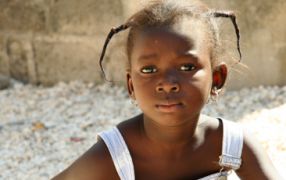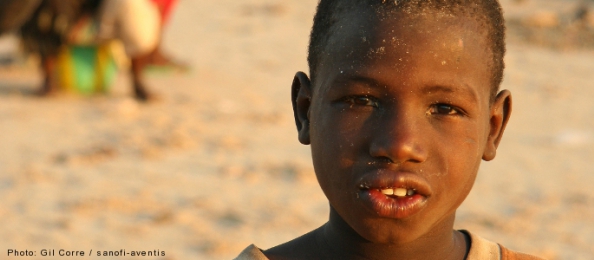Improving the Future of Epileptic Patients
Epilepsy is not a cause of significant mental impediments. Nevertheless, it is often falsely perceived as a mental disorder in developing countries. Although epilepsy is not fatal, patients who do not receive treatment will experience serious difficulties over their lifetime. In addition to the disease being a handicap in daily life and work, over time, people with epilepsy face social marginalization or even exclusion. In turn, the social group itself is deprived of their economic and social contributions. To address this disease in developing countries, all of these factors need to be taken into account. Sanofi-aventis, as a leader in the global pharmaceutical industry, is thus providing developing countries not only facilitated access to its quality medicines, but also a large number of health services that respond to their specific needs.
| Initiator | Sanofi Aventis |
| Project start | 2008 |
| Status | active |
| Region | Kenya |
| Contact person | Mireille Cayreyre |
| Awards | - |
Project benefit
- Medical treatment
- Training of medical staff
- Fighting against the stigma of epilepsy
| Anti-Corruption | - |
| Business & Peace | - |
| Development | - |
| Environment | - |
| Financial Markets | - |
| Implementing UNGC Principles in your Corporate CSR Management | - |
| Human Rights | x |
| Labour Standards | - |
| Local Networks | - |
| Advocacy of global issues | x |
| Business opportunities in low income communities/countries | - |
| Project funding | - |
| Provision of goods | x |
| Provision of services/personal | - |
| Standards and guidelines development | - |
- SantéSud, Kenyan Association for the Welfare of Epileptics, Epilepsy Research Action Network and Madagascar Epilepsy Network.
To achieve these goals, sanofi-aventis creates partnerships with healthcare structures that have a long history of in-the-field presence. This proximity allows for better patient management and follow-up and improved treatment compliance. It furthermore provides an opportunity to train the entire community, so that epilepsy patients are correctly oriented and freed from the stigma associated with this disease.
Two medications for the treatment of epilepsy worldwide
The sanofi-aventis Group was the creative force behind phenobarbital and valproic acid, two of the world’s most frequently used epilepsy medications over the past 40 years. These two drugs are included in the WHO Model Lists of Essential Medicines. Valproic acid, discovered in 1967, has completely changed epilepsy treatment methods and, in so doing, the lives of millions of people with epilepsy worldwide.
The commitment of sanofi-aventis, in collaboration with its numerous partners (NGOs, universities, governments, etc.), to carry out epilepsy management actions in developing countries is a natural consequence of its history as an authority on anticonvulsant development and production, as well as its involvement in the field of neurology more generally, as exemplified by its numerous educational programs and clinical trials, among other things.
- Eighty-five percent of epileptics, 42 million, live in developing countries where disease prevalence is more pronounced.
- In these countries, the yearly incidence is from 49 to 190 new cases per 100,000 inhabitants. This is twice that of developed countries.
- Approximately 5% of the world’s population will experience a seizure at least once in their lives.

Providing Know-how - Interview with Mireille Cayreyre
Accessibility and availability of products are as well as the training of good heath care professionals the key problems in rural areas in Africa. We talked about that with Mireille Cayreyre from Sanofi-Aventis. more[...]
Eliminating the stigma of epilepsy
"Epilepsy is always badly perceived in traditional cultures. In numerous regions of Africa, people with epilepsy are thought to be contagious and others avoid touching them, especially during a seizure."
(Reference: Michel Dumas, Académie de Médecine, March 2008)
In some cultures, epileptic seizures are attributed to possession by evil spirits. The patients are thus put under the care of tribal healers or exorcists instead of physicians. Lacking proper diagnosis and treatment, they live on the margins of the community. With a correct diagnosis, the vast majority of people with epilepsy can be successfully treated with currently available medications. However, the majority (80%) of epileptic patients in developing countries do not receive treatment, and are often not even diagnosed, due to a lack of access to medical structures and medications that could help them. This results in serious physical, psychological, social and economic consequences for the patients and their families. (Reference: WHO, “Atlas - Epilepsy Care in the World 2005”)
Putting training where it is needed in Africa

Working in close collaboration with its various partners, including NGOs and universities, sanofi-aventis is bringing together its expertise and particular strengths in joint training programs in Africa. These programs are designed to train networks of physicians for the management of chronic diseases, such as epilepsy.
Patient management in Africa is often difficult due to the isolation of populations, the rarity of healthcare structures and the lack of sufficient well-trained healthcare personnel. This is even more so the case for epilepsy and neurology in general. These specialties are almost completely absent from medical university programs and draw little attention from politicians, who are much more focused on the infectious tropical diseases that are decimating populations. The objective is thus to make sure that general practitioners (GPs) are both present in rural areas and trained for chronic, neurological diseases.
The effectiveness of these efforts is built upon the effective use of existing networks of trained GPs and their initiation in the management of epilepsy. Similarly, in Eastern Africa, state-supported healthcare structures have initiated training programs to improve the knowledge of physicians, nurses and even students in epilepsy detection and management.
All these structures have in common very “elaborate” training programs and close proximity to the various populations and families. This allows them to work toward removing the stigma of epilepsy and to implement health programs adapted to the long-term care of this chronic disorder.
It is thus logical that these organizations and sanofi-aventis join hands.
Sanofi-aventis' partnerships with SantéSud in Mali and Madagascar and KAWE in Kenya
SantéSud is an NGO promoting sustainable healthcare development in some of the world's poorest countries. Sanofi-aventis partnered with SantéSud to develop programs for rural GPs in Mali and Madagascar (AMC, “Association of Country Doctors”). According to the strategy defined by sanofi-aventis within the context of Access to Medicines, these programs provide:
- basic epilepsy training for particularly motivated GPs (RARE – “Epilepsy Research Action Network”, and REM - “Madagascar Epilepsy Network”);
- access to valproic acid and phenobarbital, sold to physicians using a differential pricing policy and supplied through a distribution system made reliable by the active participation of all actors, including the distributing wholesaler;
information and educational documents on epilepsy and its treatment. These medically thorough documents are available to participants in paper or electronic versions. In addition to basic training, they provide, in particular, an opportunity for follow-up and exchange of experience among trained physicians.

In Kenya, the KAWE program is designed on the same principle and profits from a multi-partnership that includes sanofi-aventis. The training for healthcare specialists is provided in hospitals and specialized clinics, where patients come for consultation.
These two sanofi-aventis affiliated programs have in common:
- sufficiently numerous and particularly motivated healthcare personnel, providing patients and their families with myth-dispelling facts on the disease and improved long-term care;
- an IEC (Information Education Communication) given at program start-up and accompanied by follow-up sessions (e.g. five three-day training sessions over one-and-a-half years for the RARE network);
- access to quality medicines furnished by sanofi-aventis at a preferential price via a local wholesaler, who has also agreed to lower his profit margin.
These two programs have resulted in the training of more than 35 GPs in Mali and the treatment of more than 1700 epileptic patients, with positive results in more than two-thirds of the cases.
- The Madagascar program was launched at the end of 2007 with 10 GPs.
- In Kenya, training has been provided to more than 250 physicians, nurses and students and resulted in more than 10,000 patients treated.
Expanding these actions to Cameroon, Cambodia and Laos
After four years of shared experience, SantéSud, sanofi-aventis and the KAWE have demonstrated that it is possible for rural GPs to provide epilepsy management. Families now agree to stop "hiding" their children and seek the assistance of qualified healthcare personnel, while calling less and less on tribal healers.These programs have inspired other structures, including national-level entities and international organizations.
Indeed, pilot programs are being started in Cameroon, with the support of sanofi-aventis. These include an epidemiological study in an isolated region of the country, training for the healthcare personnel assigned to this region and access to medications at preferential prices. The International League against Epilepsy (ILAE), in its joint program with WHO “Out of the Shadows”, also understands the importance of multi-partnerships for the implementation of campaigns against epilepsy. In addition to its participation in these various actions, sanofi-aventis is developing comparable activities in Asia, in Cambodia and soon Laos.
It is clear that the entire community benefits when efforts are made to improve the lives of its ill members. In Mali, Madagascar, Kenya and Cambodia, we are working for a new, better, healthier and more productive future; a future that benefits our Group as well. Through the use of our medicines and know-how for patient treatment and the training programs that result from our on-site partnerships, sanofi-aventis, through its sustained engagement against this chronic disease, is actively strengthening the battle against epilepsy in developing countries.
This project description was originally presented in the Global Compact International Yearbook 2009.
Mireille Cayreyre is Associate VP Access to Medicines at Neglected Diseases/CNS - Sanofi-Aventis.
Sanofi's sustainability approach places the patient at the heart of the Group’s business conduct. This approach is based on four key areas: Patient, People, Ethics and Planet.
Corporate Social Responsibility (CSR) is at the heart of Sanofi's development strategy because its long-term sustainability depends on it. As a patient-centred global healthcare leader, it therefore makes certain that it always acts ethically and responsibly in support of economic and social development while preserving the environment.
Write a comment about this page
Your comments are provided by your own free will and you take sole responsibility for any direct or indirect liability. In order to maintain the highest discussion quality, all comments will be reviewed by our editors. You hereby provide us with an irrevocable, unlimited, and global license for no consideration to use, reuse, delete or publish comments in accordance with our Community Guidelines.
About Us // Privacy Policy // Copyright Information // Legal Disclaimer // Contact
Copyright © 2012-2018 macondo publishing GmbH. All rights reserved.
The CSR Academy is an independent learning platform of the macondo publishing group.









